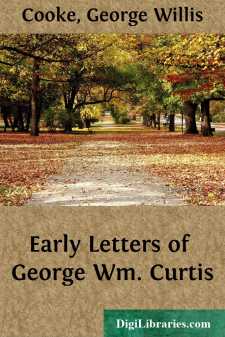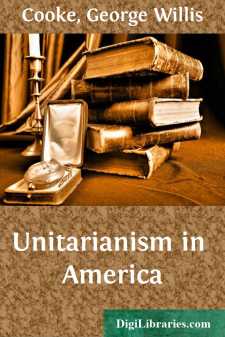Categories
- Antiques & Collectibles 13
- Architecture 36
- Art 48
- Bibles 22
- Biography & Autobiography 813
- Body, Mind & Spirit 142
- Business & Economics 28
- Children's Books 15
- Children's Fiction 12
- Computers 4
- Cooking 94
- Crafts & Hobbies 4
- Drama 346
- Education 46
- Family & Relationships 57
- Fiction 11828
- Games 19
- Gardening 17
- Health & Fitness 34
- History 1377
- House & Home 1
- Humor 147
- Juvenile Fiction 1873
- Juvenile Nonfiction 202
- Language Arts & Disciplines 88
- Law 16
- Literary Collections 686
- Literary Criticism 179
- Mathematics 13
- Medical 41
- Music 40
- Nature 179
- Non-Classifiable 1768
- Performing Arts 7
- Periodicals 1453
- Philosophy 64
- Photography 2
- Poetry 896
- Political Science 203
- Psychology 42
- Reference 154
- Religion 513
- Science 126
- Self-Help 84
- Social Science 81
- Sports & Recreation 34
- Study Aids 3
- Technology & Engineering 59
- Transportation 23
- Travel 463
- True Crime 29
George Eliot; a Critical Study of Her Life, Writings & Philosophy
Description:
Excerpt
I.
EARLY LIFE.
The poet and the novelist write largely out of personal experience, and must give expression to the effects of their own history. What they have seen and felt, gives shape and tone to what they write; that which is nearest their own hearts is poured forth in their books. To ignore these influences is to overlook a better part of what they write, and is often to lose the explanation of many features of their work. Shakspere is one of those who are of no time or place, whose words gain no added meaning in view of what he was and how he lived; but it is not so with a great number of the best and most inspiring writers. The era in which they lived, the intellectual surroundings afforded them by their country and generation, the subtle phases of sentiment and aspiration of their immediate time and place, are all essential to a true appreciation of their books. It is so of Goethe, Byron, Shelley, Hugo, Wordsworth, Emerson, and how many more!
As we must know the eighteenth century in its social spirit, literary tendencies, revolutionary aims, romantic aspirations, philosophy and science, to know Goethe, so must we know the nineteenth century in its scientific attainments, agnostic philosophy, realistic spirit and humanitarian aims, in order to know George Eliot. She is a product of her time, as Lessing, Goethe, Wordsworth and Byron were of theirs; a voice to utter its purpose and meaning, as well as a trumpet-call to lead it on. As Goethe came after Lessing, Herder and Kant, so George Eliot came after Comte, Mill and Spencer. Her books are to be read in the light of their speculations, and she embodied in literary forms what they uttered as science or philosophy.
Not only is a poet's mind affected by the tone of thought about him, but his personal experiences and surroundings are likely to have a large influence on what he writes. Scott was deeply affected by the romantic atmosphere of his native land. Her birthplace and youthful surroundings had a like effect on George Eliot. The Midland home, the plain village life, the humble, toiling country folk, shaped for her the scenes and characters about which she was to write. Some knowledge of her early home and the influences amidst which her mind was formed, help largely to an appreciation of her books and the views of life which she presents in them.
The Midland region of England she has pictured with something of that accuracy with which Scott described the Border. It is a country of historic memories. Near by her childhood home was the forest of Arden and Astly Castle, the home of Sir John Grey, whose widow, Elizabeth Woodville, became the queen of Edward IV. This was also one of the homes of Henry Grey, Duke of Suffolk, who was found in a hollow tree near by after his rebellion; and the home, likewise, of his daughter, Lady Jane Grey. In another direction was Bosworth Field; and within twenty miles was Stratford-upon-Avon. The ancient city of Coventry was not far distant. It was not these historic regions which attracted her, however, so much as the pleasant country, the common people, the quiet villages....




